Alongside the heartfelt tenderness, there is an emotional weight - as well as a compositional sophistication - prevalent in Alban Berg’s Seven Early Songs. Perhaps this correctly discloses the word "early" as pertaining to the composer’s journey as an artist, as opposed to his lived years. Having written around 30 such pieces in his twenties, whilst being taught by Arnold Schoenberg, Berg chose to both publish and orchestrate these seven when he was forty years old. Though each penned by a different author, there’s more than an echo of wistful nostalgia in the text of every piece, and his skillful orchestrations beautifully evoke the differentiated narratives.
Capturing the ethereal magic woven into the music, Dorothea Röschmann’s voice (the soprano pictured below by Harald Hoffmann) seemed to emerge from nowhere as she began the cycle with "Nacht" (Night) set to poetry by the German writer and playwright Carl Hauptmann. The orchestra produced a remarkably soft and tender sound, only giving hints as to its massive forces in the opening of the third song "Die Nachtigall" (The Nightingale). The lower strings and muted brass suggested a conflicted undercurrent, perhaps in answer to the song’s final, questioning line - ‘is it pain or exaltation?’. The final song - "Sommertage" (Summer Days) - saw both soloist and orchestra capture the rapture of a long, slow, sun-drenched evening. The cycle’s closing bars were relatively unremarkable, though perfect in their perfunctity, making autumn’s impending darkening leaves appear not so bad at all. 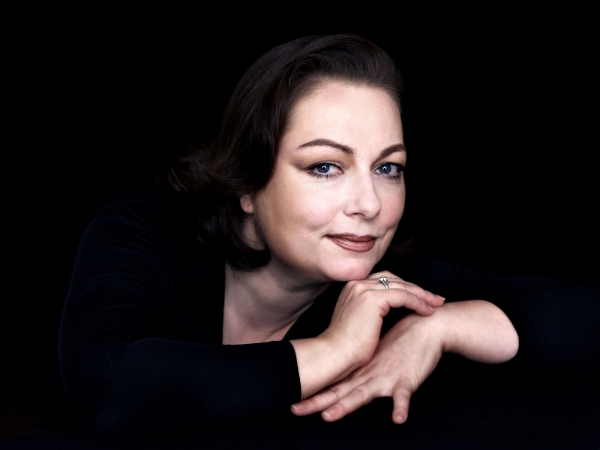 Following on with two of Berg’s orchestral works - the Passacaglia and the Three Pieces, Op. 6 - the LSO under Rattle continued to illuminate the vast palette of Berg’s orchestral colour. His Passacaglia embodied a deliciously murky sound-world, and had a poised, inquisitive ending. A highlight of the evening, Berg’s Three Pieces provided a perfect platform for the orchestra and conductor to showcase their relationship. The colours in the piece emerged as threads on an intricate loom, with Rattle as the weaver. From whispering percussion to spiky yet soft strings, Rattle had full command of the orchestra, conjuring vastly intricate action with the most delicate of movements.
Following on with two of Berg’s orchestral works - the Passacaglia and the Three Pieces, Op. 6 - the LSO under Rattle continued to illuminate the vast palette of Berg’s orchestral colour. His Passacaglia embodied a deliciously murky sound-world, and had a poised, inquisitive ending. A highlight of the evening, Berg’s Three Pieces provided a perfect platform for the orchestra and conductor to showcase their relationship. The colours in the piece emerged as threads on an intricate loom, with Rattle as the weaver. From whispering percussion to spiky yet soft strings, Rattle had full command of the orchestra, conjuring vastly intricate action with the most delicate of movements.
The orchestra’s expert attention to detail was as acute in Beethoven’s Seventh Symphony. Though its execution was neat and clean, it still held excitement and surprise, with every sound and silence given its own, equal importance. Darting between light and shade in the first movement, Rattle lent a lighthearted though by no means irreverent scope to the score. The build and release of tension in the second was skillfully portrayed, though the joyous romp that is the third felt a touch hemmed in. Equally, the final movement, Allegro con brio, could have had a little more, well, brio. Every note in every ornament was audible, with a keen, biting precision from each player, the symphony was as flawless any listener could ever hope to hear. An orchestra as good as this though, can afford to take a risk now and then.


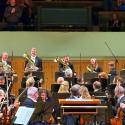
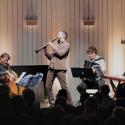


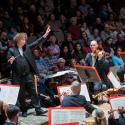
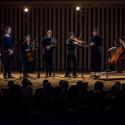
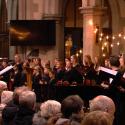
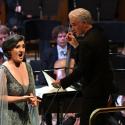



Add comment